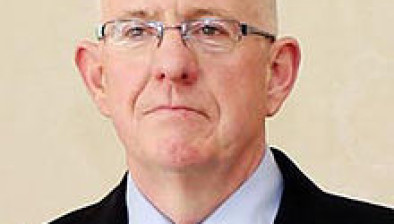Harsher fines now in place for airlines that fail to check passenger documentation

A two-thirds increase in fines imposed on airlines who fail to ensure that passengers have appropriate travel documentation has taken effect.
The maximum fine has increased to €5,000 from the previous maximum of €3,000 following the commencement of relevant provisions in the Courts, Civil Law, Criminal Law and Superannuation (Miscellaneous Provisions) Act 2024.
“Carriers such as airlines and ferry companies play an essential role in protecting and upholding our borders and they are obligated to ensure their passengers have the necessary valid passports, ID cards and visas to travel to Ireland,” justice minister Helen McEntee said.
“My Department is working closely with them to support them in these obligations, including through the provision of training. However where the rules are not followed, increased fines will now apply.
“Increasing carrier liability fines brings us into line with our counterparts across the EU and are necessary to ensure that measures introduced 21 years ago retain their effectiveness.”
She added: “This is one of a number of steps which I am taking to deliver a fair, but firm immigration system. The running of doorstop operations at Dublin airport, the training of airline staff, and the posting of gardaí to key European transport hubs have all worked to significantly reduce the numbers presenting without appropriate documentation.
“Alongside increasing the level of penalties, I will provide additional supports to carriers to help them meet their obligations. This continued co-operation is key to upholding the integrity of our immigration system, ensuring protection for people who need it, and allowing us to quickly return those who do not qualify to be here, to their country of origin.”
Further measures to be introduced at a later date include guidelines to assist carriers, and consideration of the feasibility of a “dynamic fines model which recognises carriers who strongly enforce documentation requirements”.








